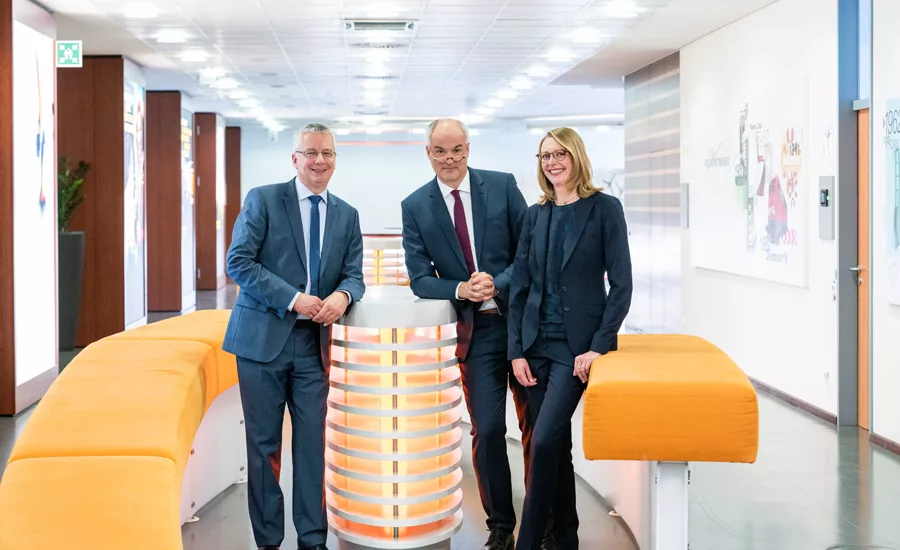Covestro in Finals for German President's Award

LEVERKUSEN, Germany — A team from the materials manufacturer Covestro and RWTH Aachen University has reached the finals for the German Future Prize with a new process for using CO2 as a raw material. Federal President Frank-Walter Steinmeier will present the award on Nov. 27, 2019, in Berlin. Dr. Christoph Gürtler and Dr. Berit Stange from Covestro as well as Professor Walter Leitner, teacher and researcher at RWTH Aachen University and the Max Planck Institute for Chemical Energy Conversion, are hoping for a victory. They have become instrumental in the development and market launch of a technology for using the CO2 exhaust gas in plastics production.
The team has presented the innovation to the public in Munich. Covestro researcher Gürtler emphasized that the process makes a contribution to sustainability and resource conservation by partially replacing crude oil with CO2 as a carbon supplier. In addition, the reuse of CO2 contributes to the recycling economy. “We see considerable value creation potential for industry in the use of CO2,” added Gürtler, who is responsible for the development of new processes and products at Covestro.
Stange emphasized that this is a platform technology that allows the CO2 to be used for a wide range of high-quality plastics (polyurethanes). “Chemical preproducts with CO2 to produce soft foam for mattresses and upholstered furniture are already available on the market,” said Stange.
“As alternative carbon sources, carbon dioxide as well as plants and plastic waste have the potential to revolutionize production in the plastics industry,” stressed Covestro CEO Dr. Markus Steilemann. “Covestro is a pioneer in this field. Fossil raw materials such as oil can no longer be the main resource of our industry if the world embarks on a more sustainable future.”
The use of CO2 took off with a breakthrough in catalysis research, as Professor Leitner explained, “It takes a lot of effort for CO2 to form chemical compounds. The major challenge was to develop a tailor-made catalyst in order to control the reaction so that it is both economical and efficient.” Experts from Covestro and the CAT Catalytic Center, a research facility jointly operated by the company and RWTH Aachen University, have succeeded in this endeavor. Experts had been searching for such a catalyst for decades.
Looking for a reprint of this article?
From high-res PDFs to custom plaques, order your copy today!




